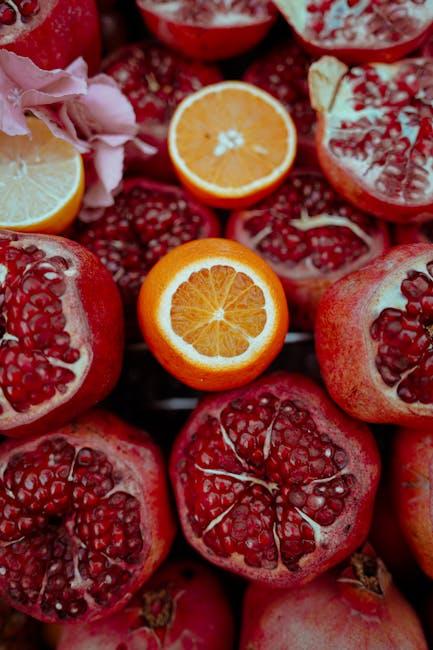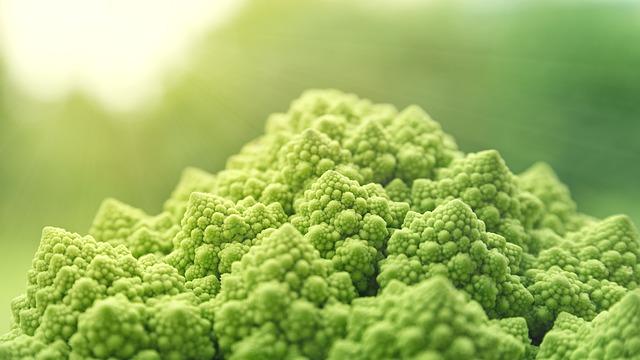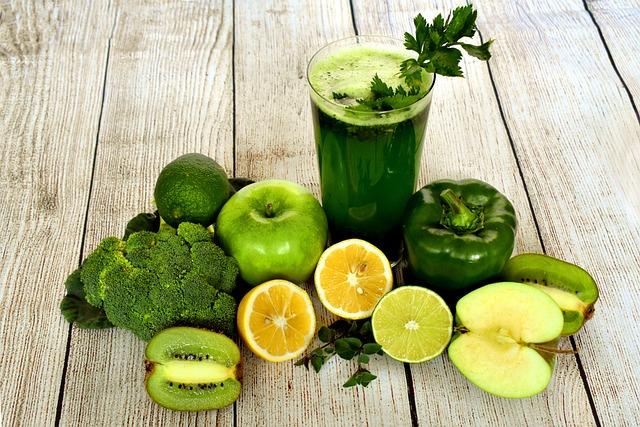In a world where dietary choices are as diverse as the cultures that inspire them, vegan and vegetarian lifestyles have surged in popularity, offering a vibrant palette of plant-based possibilities. However, amidst the lush fields of fruits and vegetables, grains, and legumes, lies a common concern: maintaining optimal health. Whether you’re a seasoned herbivore or just beginning to explore the verdant pathways of plant-based eating, understanding how to nourish your body fully is paramount. This article serves as your compass, guiding you through the essential nutrients, mindful eating habits, and practical tips to ensure that your journey toward a vegan or vegetarian diet is not only sustainable but also supremely healthy. So, grab your favorite smoothie, settle in, and let’s embark on this nourishing adventure together.
Balancing Nutrients for Optimal Health
Ensuring your diet is rich in a variety of nutrients is key to maintaining optimal health on a vegan or vegetarian diet. Focus on incorporating a colorful array of fruits and vegetables to cover a broad spectrum of vitamins and minerals. Key nutrients to pay attention to include:
- Protein: Incorporate plant-based sources like beans, lentils, chickpeas, tofu, and quinoa to meet your daily protein needs.
- Iron: Boost your iron intake with foods such as spinach, lentils, and fortified cereals. Pairing these with vitamin C-rich foods like oranges and bell peppers can enhance absorption.
- Calcium: Opt for fortified plant milks, leafy greens, and almonds to ensure adequate calcium levels.
- Vitamin B12: Since B12 is primarily found in animal products, look for fortified foods or consider taking a supplement.
- Omega-3 Fatty Acids: Flaxseeds, chia seeds, and walnuts are excellent sources of ALA, a type of omega-3 fatty acid.
Balancing these nutrients will help you maintain energy levels, support bodily functions, and stay healthy while enjoying a plant-based lifestyle.

Plant-Based Protein Powerhouses
Embracing a vegan or vegetarian lifestyle doesn’t mean sacrificing protein intake. There are numerous plant-based protein sources that can be seamlessly integrated into your meals. These options not only offer protein but also provide a wealth of nutrients and flavors to keep your diet exciting and satisfying.
- Legumes: Lentils, chickpeas, and black beans are versatile and protein-rich, perfect for soups, salads, or homemade veggie burgers.
- Quinoa: Known as a complete protein, quinoa is ideal for salads, bowls, or as a side dish, offering a nutty flavor and satisfying texture.
- Nuts and Seeds: Almonds, chia seeds, and hemp seeds are great for snacks, toppings, or blended into smoothies for an extra protein punch.
- Tofu and Tempeh: These soy-based proteins can be marinated, grilled, or stir-fried, providing a hearty and delicious addition to any meal.
With these protein powerhouses, maintaining a balanced diet is both easy and enjoyable, ensuring you get the necessary nutrients while exploring a world of plant-based culinary possibilities.

Mastering Meal Planning for Vegans and Vegetarians
Planning meals as a vegan or vegetarian can be both exciting and challenging. To ensure you’re getting all the necessary nutrients, focus on creating a balanced plate that includes:
- Proteins: Incorporate a variety of plant-based proteins such as lentils, chickpeas, tofu, tempeh, and edamame. These not only provide essential amino acids but also add texture and flavor to your meals.
- Whole Grains: Opt for quinoa, brown rice, barley, and whole-wheat pasta. Whole grains are rich in fiber, vitamins, and minerals, helping you stay full and energized throughout the day.
- Fruits and Vegetables: Aim for a rainbow of colors on your plate. Each color represents different nutrients and antioxidants, vital for maintaining overall health.
- Healthy Fats: Don’t forget to include sources of healthy fats like avocados, nuts, seeds, and olive oil. These fats are crucial for brain health and hormone production.
Experiment with seasonal produce and different cooking techniques to keep your meals interesting. Try roasting vegetables for a caramelized flavor, or blending fruits and greens into smoothies for a nutrient-packed breakfast. With thoughtful planning, a vegan or vegetarian diet can be both nutritious and delicious.
Essential Vitamins and Minerals to Monitor
Adopting a vegan or vegetarian lifestyle can be incredibly rewarding, but it’s crucial to ensure you’re getting all the necessary nutrients. Vitamins and minerals play an essential role in maintaining overall health, and some may require extra attention when following a plant-based diet. Here are key nutrients to keep an eye on:
- Vitamin B12: Found primarily in animal products, B12 is vital for nerve function and the production of DNA and red blood cells. Consider fortified foods or supplements to meet your daily requirements.
- Iron: While plant-based sources of iron (non-heme iron) are less easily absorbed by the body, incorporating foods rich in vitamin C can enhance absorption. Good sources include lentils, chickpeas, quinoa, and fortified cereals.
- Calcium: Crucial for bone health, calcium can be sourced from fortified plant milks, tofu, almonds, and leafy greens like kale and bok choy.
- Omega-3 Fatty Acids: Essential for brain health, omega-3s can be found in flaxseeds, chia seeds, hemp seeds, and walnuts. Algal oil supplements are also a great vegan option.
- Vitamin D: Important for bone and immune health, vitamin D can be obtained from fortified foods and supplements, especially during the winter months when sunlight exposure is limited.
- Zinc: Necessary for immune function and metabolism, zinc is available in beans, lentils, seeds, and whole grains. Soaking and sprouting these foods can improve zinc absorption.
By paying close attention to these nutrients, you can ensure a balanced and healthy diet that supports your vegan or vegetarian lifestyle.





